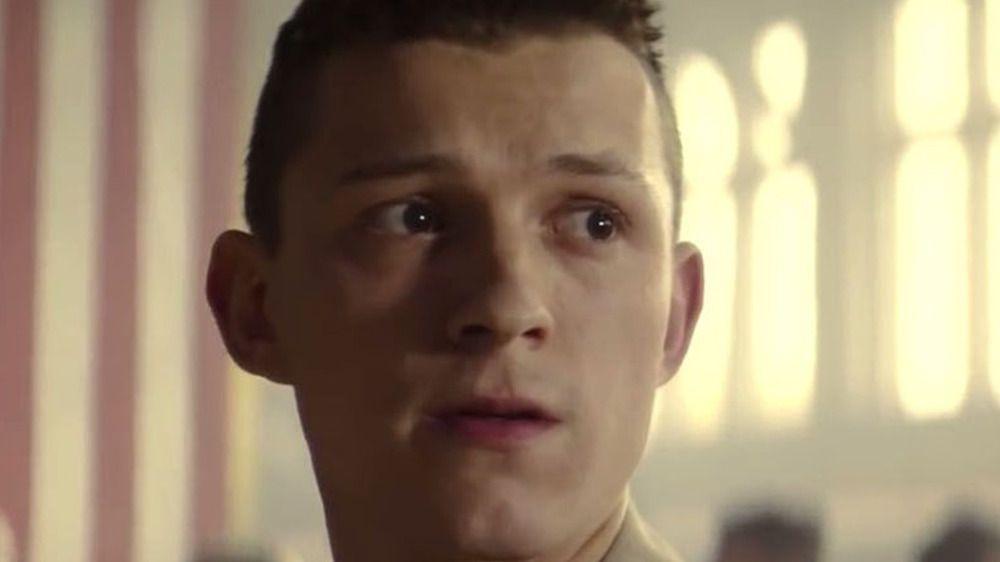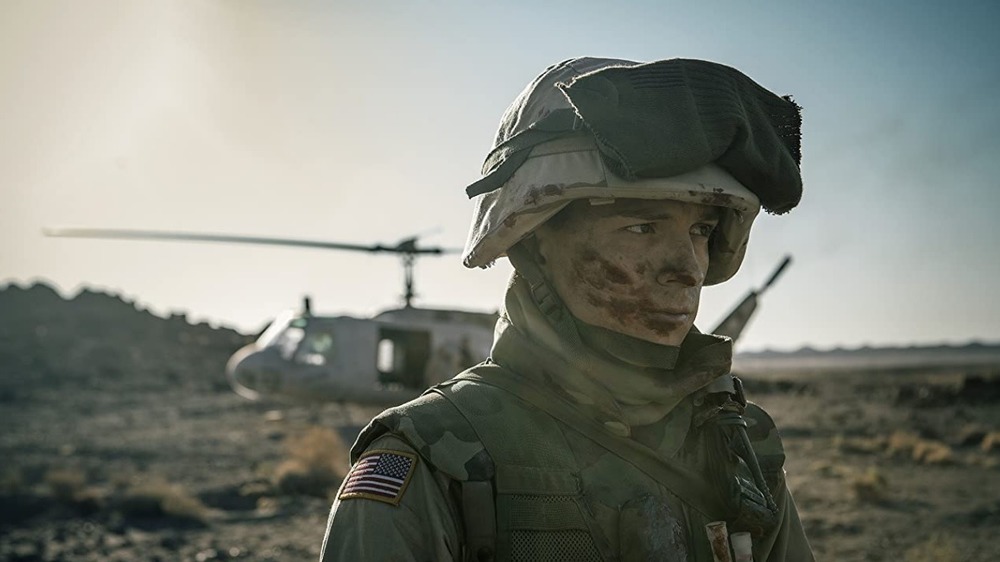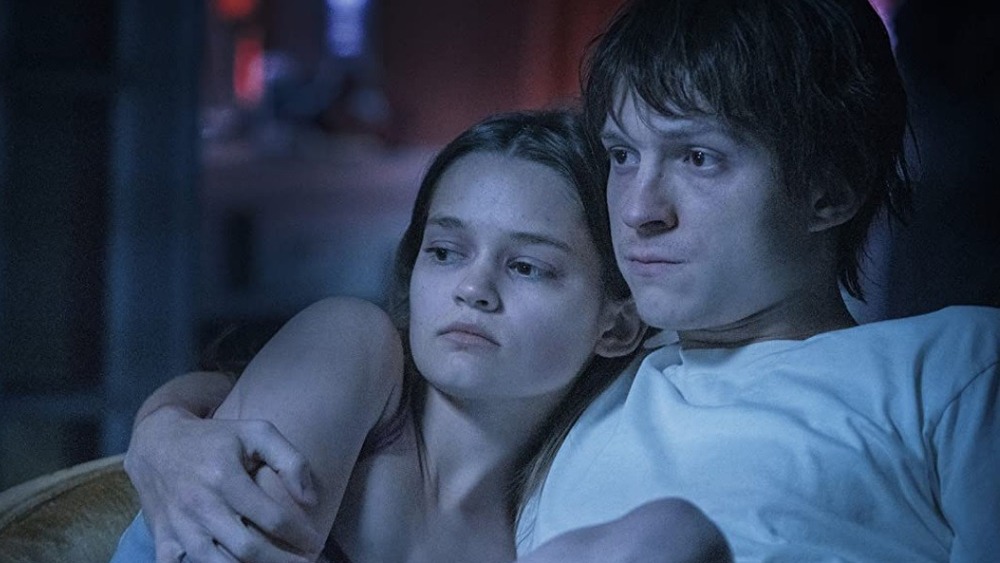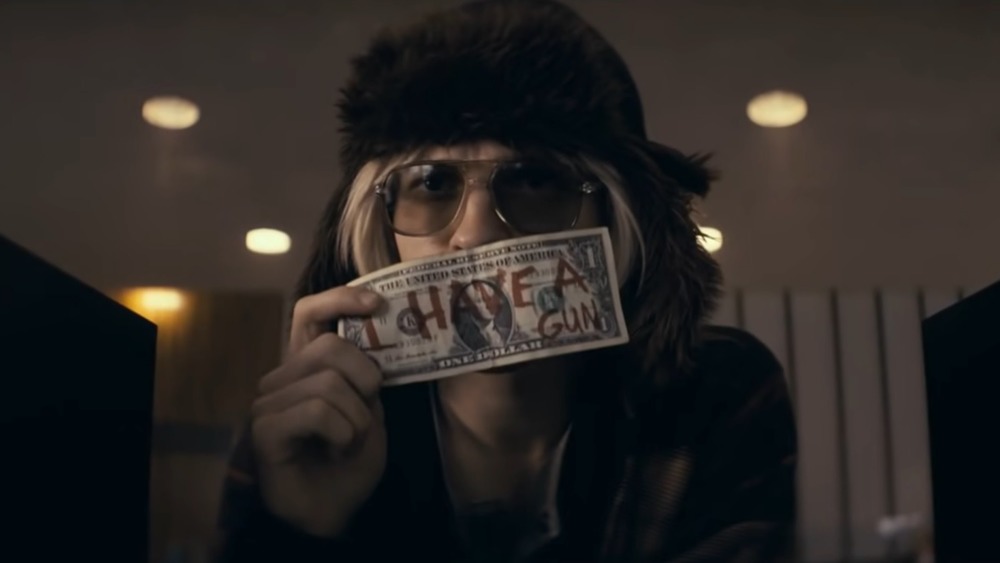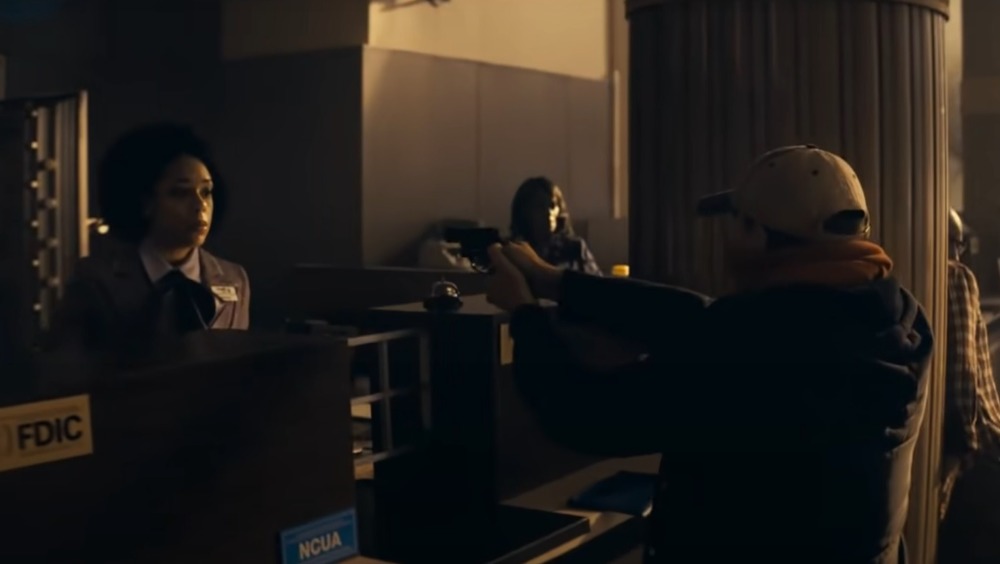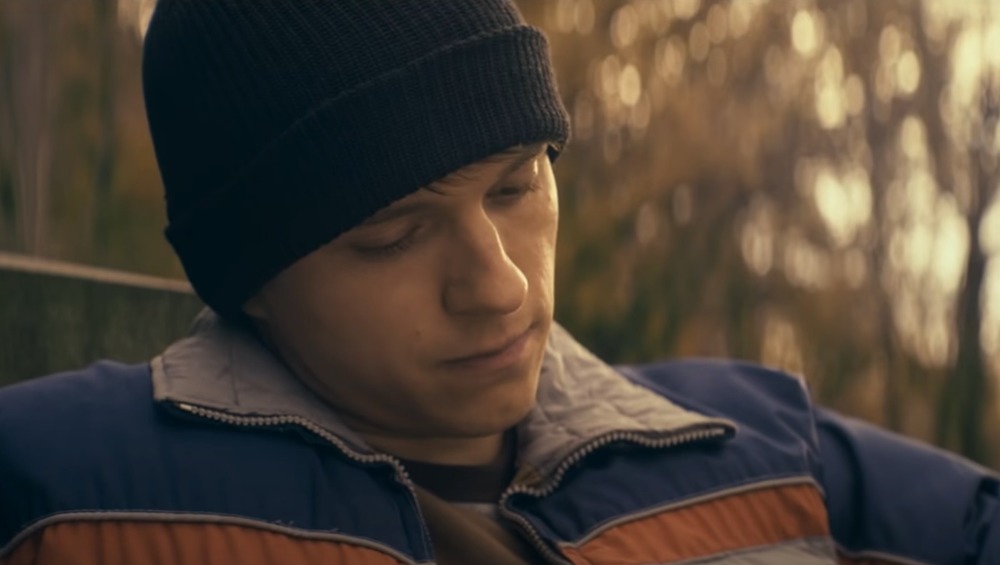The Ending Of Cherry Explained
War is hell, and sometimes, so is coming home. Cherry, based on the autobiographical novel of the same name by Nico Walker, is the Russo Brothers' first outing as feature film directors since their recent run of movies for the Marvel Cinematic Universe (MCU). The duo enlisted frequent Marvel collaborator Tom Holland to star as Cherry, a smart, young man making a rocky transition into adult life in the early 2000s. With seemingly few available avenues for success, Cherry enlists in the army at the beginning of the Iraq War. When he returns home, he finds that his life has been changed by the experience, and not for the better.
Through the use of some distinct stylistic choices and a big assist from the raw performances of Holland and Big Time Rush star Ciara Bravo as Cherry's wife, Emily, the film immerses viewers into the turmoils of living with PTSD and drug addiction. It is a harrowing and visceral journey, but, for all the ugliness it reveals, the movie manages to end on a surprisingly bright note. Here's what you need to know about how everything comes together at the end of Cherry.
Cherry has a difficult time returning home from his deployment to Iraq
The first half of Cherry follows the eponymous character as he moves into adulthood, marrying Emily and enlisting in the army as a medic. When he gets to Iraq, the experience is significantly more dire and gruesome than he'd anticipated. As someone who already felt alienated and dehumanized by the institutions that control our daily lives, his experience is intensified in the army, where his commanding officers seem to have little regard for the trauma that Cherry and his comrades are experiencing on a regular basis.
When he returns home, having witnessed countless horrifying injuries and deaths — including that of his friend, Jimenez (Jeff Wahlberg) — Cherry struggles with PTSD. He's unable to sleep because of his violent dreams and he has anxiety attacks so bad that the Xanax he's been prescribed doesn't help. However, his old friend, James Lightfoot (Forrest Goodluck), does have something that is able to take the edge off: Oxycontin. Cherry begins using Oxy regularly to help with his anxiety and general feeling of despair. When he goes to an army doctor (Thomas Lennon) for help, he receives the same kind of cold indifference that he has from every other authority figure in his life. The doctor writes him his own prescription for Oxy, which leads to Cherry's addiction to the powerful drug.
Cherry and Emily struggle to find hope
Cherry's addiction to Oxy becomes another in a series of major problems in his marriage to Emily. Although he is the one who was sent to Iraq, she also deals with the consequences. While Cherry's nightmares stem from witnessing the existential horrors of war, hers come from seeing the person she loves most experiencing immense suffering she can't heal. She's devastated that the life she had imagined for herself and Cherry is slipping through her fingers. Feeling that she's at the end of her rope, Emily also begins using Oxy. Earlier in the film, someone describes seeing the horrors of war as "getting your cherry popped." While that metaphor is used in a very specific instance, it also applies to the broader feeling of hopelessness that both Cherry and Emily are experiencing after his deployment. Life now seems to them cold and uncaring, as if the hands of fate can wipe the board clean at any time.
In a heartbreaking scene, they lie in bed together, both high, and reminisce about their lives before Cherry joined the army. He brings up a happy memory from before, and mutters, "Can't see that we'll ever make it back there, though." She replies, "No. But I'm okay with that." They may never be able to get their old lives back, but while they are on drugs, they at least get a respite from the horror of their current situation. As Cherry announces in a voiceover narration, "That was how we became addicts."
Addiction leads Cherry down a path of desparation
The couple quickly moves from Oxy to heroin. They begin their journey intending to be habitual, but responsible, users, but quickly end up in a vicious cycle: they never have enough money for the amount of drugs they need, but they are so deep in the throes of addiction that not having the drugs makes them dangerously ill. This leads them to desperate acts. After dumping a significant portion of their drug dealer's stash down the toilet in a fit of paranoia, Cherry and Emily find themselves in a serious financial hole. Their dealer, who they call Pills and Coke (Jack Reynor)) isn't particularly menacing, but his supplier, known only as Black (Daniel R. Hill), looms as a serious threat over their heads. With nowhere else to turn for the incredible amount of money needed to pay off their debts, Cherry decides to try his hand at bank robbery.
The decision to start robbing banks represents a major shift in Cherry's worldview. We've seen him at the bank several times previously in the movie, and each was a frustrating experience of being caught in a web of bureaucracy. The faces of the tellers were obscured by shadows, and their behavior toward him was clinical and dismissive. But when he does his first robbery, that changes. Their faces come into clear focus and he registers that, now that he's upended the balance of power, they are afraid and deferential. Understanding this helps Cherry in his career as a bank robber, but it doesn't make him feel any better about it.
Cherry realizes there's only one way to break the cycle
Cherry has success as a bank robber, insofar as he's able to pull off quite a few heists without getting caught. However, even in the haze of his addiction, he realizes he's now on a ride that he can't stop. His continued dependence on drugs forces him to take bigger risks, which leads to sloppier robberies and, eventually, the death of Pills and Coke, which means that Cherry must now deal directly with Black, to whom he owes a large sum of money. To round up the funds, he partakes in one final robbery —the one the movie begins with before it bounces back to the beginning of the narrative. When we first see the scene at the beginning of the film, Cherry delivers a particularly poignant bit of voiceover narration: "I'm twenty-three years old and I still don't understand what it is that people do. It's as if all of this were built on nothing, and nothing were holding all of this together."
That sense of alienation is at the root of Cherry's problems. Since the beginning of his journey into adulthood, he's had trouble understanding how he's supposed to tether himself to society when, as he sees it, there isn't actually anything real to which to tether himself. As he heads into his final robbery, he understands this enough to know that if he wants to break out of the dangerous cycle this alienation has helped usher him into, he needs to hit the eject button. Cherry steals enough money to pay off Black, but allows himself to be arrested afterward. Although prison is far from the optimal resource for someone in his position, at that moment, he clearly sees it as the only available option to break free.
Despite his difficult journey, Cherry receives a hopeful ending
In an epilogue that is told mostly through wordless montage, we see that prison does indeed help Cherry get out of his addiction cycle. He detoxes from heroin, begins working out and going to group therapy sessions, and reads in the library. When his parole hearing comes up, he's granted an early release, and finds a smiling and healthy Emily waiting for him as he exits the prison gates.
The film ends on that moment of hope. Life has been hell for our protagonist, ever since he had his metaphorical cherry popped, and much of his misery has been a result of living in a web of bureaucracies and systems that left him feeling dehumanized. He's always been a smart, intuitive, and compassionate person, but the larger world rarely took that into account. In coming out the other side of his long ordeal, he seems to have found strength in his own resilience. The systems he's forced to live in may treat him like just another account or pair of hands on the battlefield, but that doesn't mean he has to view himself that way. Even if he's failed by his bank or the army or the pharmaceutical industry, Cherry has found that there are things in this world he can invest his time, energy, and love into that make life worth living.
